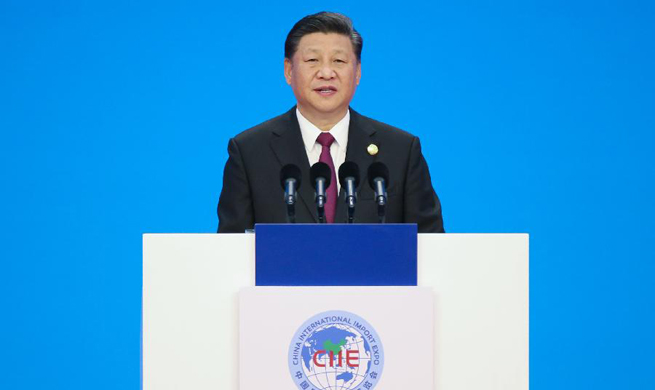WASHINGTON, Nov. 7 (Xinhua) -- Democrats have defeated at least seven incumbent Republicans in Tuesday's gubernatorial elections in the United States, expanding their power at the state level and impacting the nation's political landscape for the next decade.
As part of this year's U.S. midterm election, 36 gubernatorial races took place while the two parties fought hard in the battle for control of the Congress. Democrats captured the House, and Republicans expanded their majority in the Senate, leading to a split in the U.S. Congress.
In the gubernatorial elections, Democrats flipped the Republican governorships in Illinois, Kansas, Maine, Michigan, Nevada, New Mexico and Wisconsin. The tight race remained uncalled in Georgia, where Democrat Stacey Abrams trails Republican Brian Kemp, and could ask for a recount.
Heading into Tuesday's vote, Republicans controlled two thirds, or 33 of 50 governorships across the country, while Democrats held just 16, and there was one independent. Tuesday's governor election results are considered substantial gains for the Democrats.
But in Florida, Republican Ron DeSantis, endorsed by U.S. President Donald Trump, prevailed over Democrat Andrew Gillum, who had a chance to become the first black governor of the country's third-largest state. The win has allowed the Republican Party to continue its two-decade dominance on governorship in Florida.
Nevertheless, having picked up at least seven of 26 Republican-held gubernatorial seats, Democrats could have a bigger say in state policy and the next congressional redistricting.
Democratic governors could impede Trump's effort to repeal the Affordable Care Act, better known as Obamacare, among other things. And for parties with full control of a state government -- control of the state House, state Senate and governorship, they will have more freedom to enact their policies.
In most cases, state legislatures will be drawing new congressional boundaries after the 2020 Census, and governors will have the power to sign or veto the new map. That could potentially make a difference in the House elections in the coming years.













